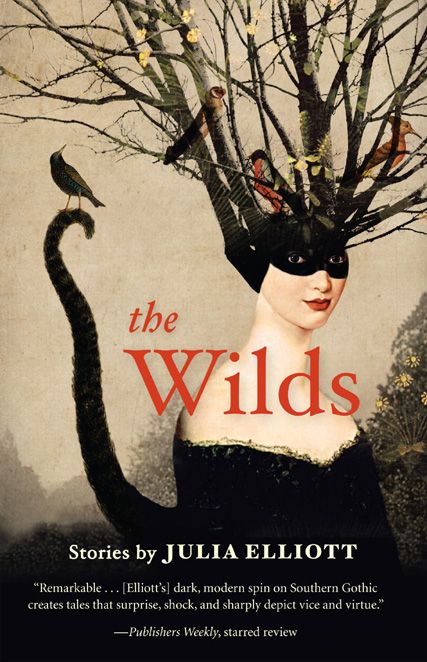
The Wilds
کتاب های مرتبط
- اطلاعات
- نقد و بررسی
- دیدگاه کاربران
نقد و بررسی

Starred review from August 11, 2014
The debut collection from Pushcart Prize–winning Elliott is a brilliant combination of emotion and grime, wit and horror. The title story is a coming-of-age tale—tree houses, pimples, puberty, and young romance—that eschews convention with just a dash of lycanthropy. In the strong “Jaws,” an adult woman vacations in Orlando with her elderly parents, only to realize as the days click by, how demented her mother has become. Bizarre health resorts populate both “Regeneration at Mukti” and “Caveman Diet.” In the former, participants scab over and shed skin as a way of rejuvenation; while the latter takes the Paleo diet craze to extremes, as men and women don loincloths and learn the ways of prehistoric barbarians in an attempt to lose weight. The ideas of revival and survival appear throughout the collection: “LIMBs” features robotic technology that allows the elderly to walk; “The End of the World” finds a has-been band trying to regroup for one final cash-in; and “Rapture” uses its title’s literal and Biblical definitions to expand the worldviews of two middle-class girls. Elliott’s gift of vernacular is remarkable, and her dark, modern spin on Southern Gothic creates tales that surprise, shock, and sharply depict vice and virtue.

August 1, 2014
Robots may search for love, but there's nothing wilder than human nature in this genre-bending short story collection from debut writer Elliott. Elliott (English and Women and Gender Studies/Univ. of South Carolina) takes the definition of "wild" and runs with it in stories which leap from Southern gothic to dystopian science fiction and sometimes blend both together. A robot with silicone lips explores permutations of love; an Alzheimer's patient regains her memory in a futuristic nursing home; and a woman goes on a Neanderthal retreat to lose weight. Sharp and funny, the stories are dark satires on the fad diets and self-absorption of modern life. Elliott shines when it comes to worldbuilding; her details are so dense and vivid the sticky heat of the deep South rises off the page, blending with the hipster neurosis of one of her Zen-crazed protagonists. She cartwheels from the sublime-"the sky in pink turmoil"-to the grotesque-"hormones spiked his blood...and fed the zits that festered on his sullen face"-but prefers to spend most of her time on the grotesque. At times it's hard to follow the lush twisting vines of Elliott's plots because they're so entangled in the worlds she creates. But no matter: Even if the stories end abruptly, without enough of a road map to let you know where you are and why you're there, there's always a delicate image or an emotional jolt that leaves you wanting more. This book will take you to places you never dreamed of going and aren't quite sure you want to stay, but you won't regret the journey.
COPYRIGHT(2014) Kirkus Reviews, ALL RIGHTS RESERVED.

September 1, 2014
Humans, robots, and humans with robotic limbs pine for carnal satisfaction in Elliot's impressively inventive, often macabre collection, animated by her characters' outsize appetites for sex, knowledge, faith, and kindness. The brilliant, whimsical robot-narrator of The Love Machine despairs when his drunk mad-scientist master floods his artificial endocrine system with neurochemicals of infatuation. The lovelorn robot is stymied by his lack of sex organs and mournfully contemplates the inadequacy of his miniscule USB ports. LIMBs, Regeneration at Mukhti, and Caveman Diet all portray characters in dystopian colonies masquerading as spa resorts. Rabidly intent on improving their flawed, aged bodies, the characters endure grueling, comically absurd regimens. Not surprisingly, the pseudotherapies trigger uneasy memories and realizations as well as chaos in the spas' governing structures. Evangelicalism appears in various forms. Rapture, one of the most vivid stories, focuses on a South Carolina family considered to be white trash by middle-class residents. Privilege and class turn to dust, however, when the working-class grandmother summons up images of Flannery O'Connor's characters by castigating everyone in the house, speaking in tongues, and levitating.(Reprinted with permission of Booklist, copyright 2014, American Library Association.)

























دیدگاه کاربران